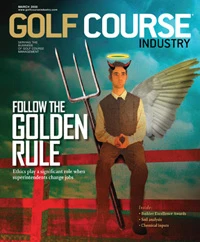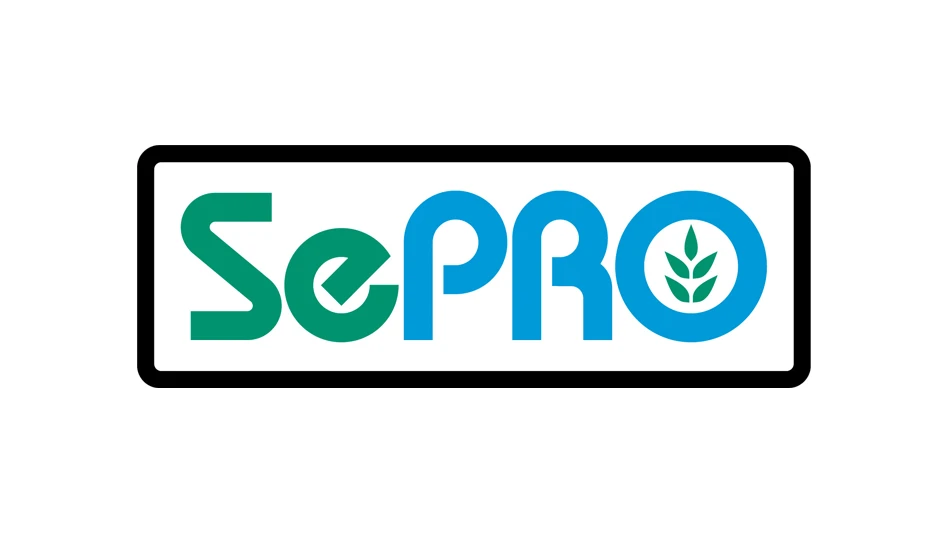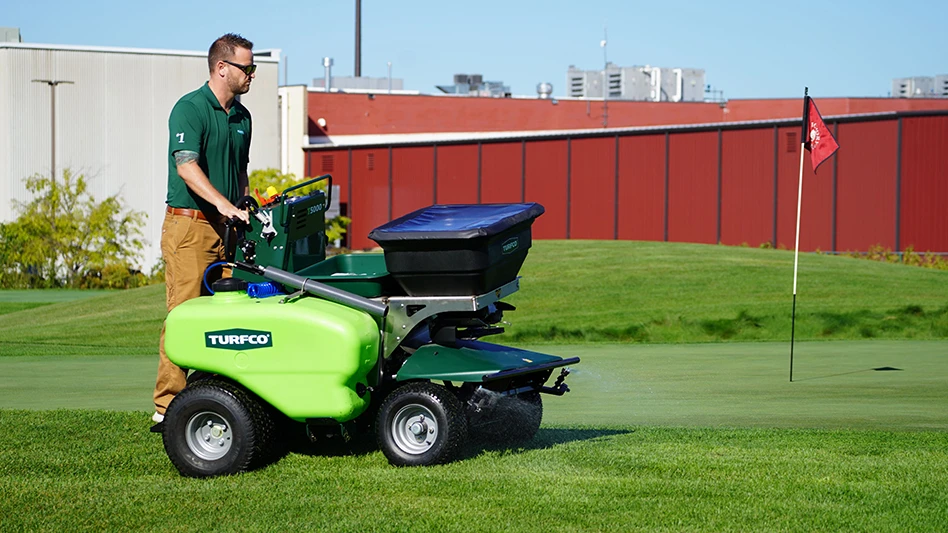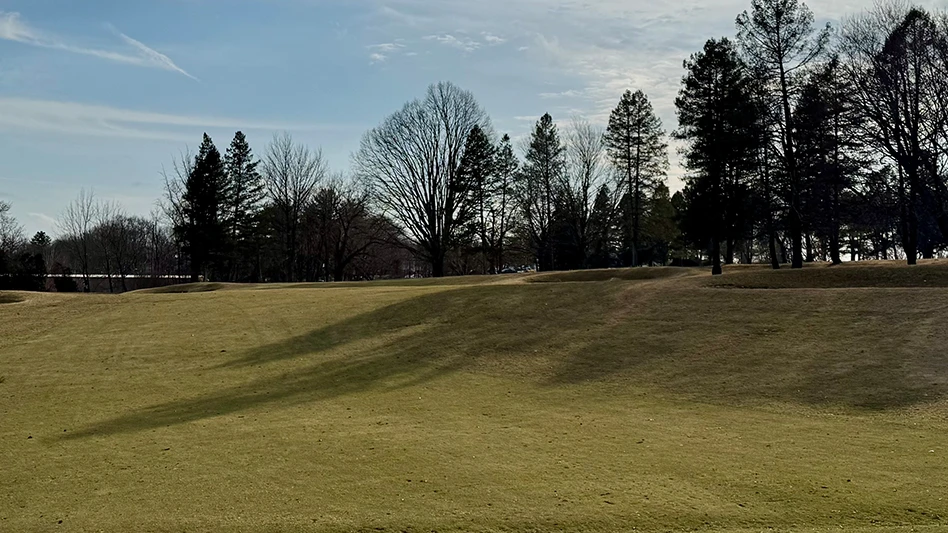Ask Willie Pennington about his favorite memories from 35 years of selling chemicals in the ag and turf industries, and he doesn’t say a word about his successes with products, all of the marketing milestones he’s achieved or his sparkling track record with BASF. Instead, he’ll start talking about people.
“Everyone says this is a ‘relationship business’ but my goal is friendship,” he says. “I really want to get to know a person as a friend before I ever start to do business with them. That’s been the secret to my success. Not much of a secret really. To me, it’s common sense.”
Pennington, now 59, grew up in tiny Lisman, Ala., a rural burg in the heart of cotton country. Talent as an offensive lineman on the football team earned him a scholarship at Tuskegee Institute, the traditionally black college best known for being home to both George Washington Carver and the famed Tuskegee Airmen of World War II. He was all-conference at offensive guard for four straight years, and even had a few tryouts with NFL teams following graduation. “I earned a grand total of $200 in my pro career,” he recalls. “I went to camps with Miami, Green Bay and Atlanta before I got hurt. That was the end of it.”
The NFL’s loss was the golf industry’s gain as Pennington turned his attention to a career that began with a production management job at a BASF ag chemical plant in Atlanta. Even in the ‘70s, he was one of only a handful of African-Americans in the business and thus started a lifelong interest in recruiting talented young minority candidates for the company. He soon switched to the sales side and, despite having little hands-on ag experience, “immersed” himself in the business.
At the time, the specialty turf and ornamental segment was a tiny, almost unknown fraction of the market at BASF and other basic manufacturers. Yet, Pennington was attracted to the “urban agriculture” market and jumped over to work the Christmas tree segment before eventually landing in turf. “When I first started in the ‘70s, the competition was petroleum companies like Amoco, Gulf, DuPont, Shell and Uniroyal. Application rates were sometimes hundreds of pounds per thousand. Now, we’re using micro-grams per thousand. The innovation has just been amazing.”
Over his four decades in the golf/turf market, Pennington was best-known as “Mr. Basamid” as he became the company’s in-house expert on the use of the fumigant to renovate golf courses. When BASF handed Basamid off to Advan LLC a few years ago, he returned to his roots as a sales rep in the Carolinas. He finally gets to see his wife of 40 years, Aris, almost every day. (“She never complained about my travel schedule over all those years. Not once. What a woman!”)
His 35th anniversary in the market – a benchmark reached by very few salespeople – seemed like a good moment to talk with Pennington about the changes he’s seen, the challenges we face and the experience of being a black man in a nearly all white market. As always, the former lineman was more than willing to talk freely about his time in the trenches.
What’s the biggest challenge facing the ag and turf chemical business right now?
There just aren’t many new compounds. You want to give the superintendent something he’s looking for, but it won’t often be something “new.” The challenge we’re facing is to find new ways to deliver value. If you look at what has happened in ag with (genetically modified crops), the market is basically a single compound – glyphosate. The ag market hasn’t so much declined as it’s become dominated by one compound. It’s the sad truth…
Turf is in better shape because it offers better profitability than ag, and there’s probably more business than everyone can handle. Some customers are obviously going generic, but by and large, they support the basics that bring value and innovation to them.
How has your approach to day-to-day sales changed over the years?
I look at it this way: I change my approach on every visit. When you invest in people – which is what I do – you don’t just walk in there and ask what they need and try to sell them what you have that might work. I just listen to their problems and issues. It’s like going to a palm reader. They listen and then feed it back to you. All I do is talk about features and let the super derive the benefit he’s looking for. I don’t take the same “cookie cutter” approach to everyone.
In your experience, what do super-intendents really want from suppliers?
The two things that stand out are continuity and trust. Continuity in the relationship means you’ve been around long enough that those who know you trust you. After they feel you out and know who you are, then they may be ready to do business. It’s the trust factor. You have to know what they’re up against. Someone is trusting them with $20 million worth of real estate. He’ll know how knowledgeable you are within a few sentences, and decide whether to trust you with his $20-million piece of property. It may take two to three years to get to that point.
It all goes back to investing in people. I’ve never considered myself a salesman. I make friends who I sometimes do business with.
You seem to know everyone in the business. How do you manage to keep track of all the contacts you’ve made?
I may not remember the name right away, but the mental Rolodex starts turning and it usually comes to me. People in this industry tend to stay in this industry. They may change titles, but they stay in the business. It’s a love thing...they stay because they love it.
How have you seen superintendents evolve and change during your career?
The relationship hasn’t changed for me. Young or old, I’ll get to know what his wants, needs and desires are before we ever talk product. We may talk politics, sports, family; whatever. I have to know what makes him tick. People in sales spend too much effort trying to offer a product rather than what they can offer as a person. A lot of young sales guys don’t realize that potential customers are still just people. We’re very social beings. People do business with people, not companies.
You’re one of only a handful of African-Americans in the industry. What kinds of challenges has that presented?
In the early days, it was a challenge. It became a personal challenge to me. But I kept pushing and got past it with almost everyone. My philosophy was, “I gotta feed my family and you gotta feed yours.”
Why are there still so few non-whites in the business?
There are a lot of things tied into it. One is the old myth that golf is a game for rich people. Good minority candidates may have already perceived that and dismissed it as a career. I never looked at it that way. You get past the racial thing pretty fast. It’s just a sport…it baffles me why it isn’t of more interest to young blacks and others.
It’s like the presidency…wealth isn’t a requirement, but how many people honestly believe they could ever do without money? It’s the same thing in our business. The perception of the game crosses over to the business. But the truth is that agronomy is agronomy. It doesn’t matter what color you are as long as the course is green.
Are there things the industry can do more to “look like America”?
I’ll just say that I don’t see the world through rose-colored glasses. I’m a realist and I want to work with the best and the brightest. If you feel that you’re the best and want to be the best, then you can be on our team. We’ll invest in you and make you better. It’s not out of reach for anyone. Sure, diversity is a mandate within in our company and I think within the industry, but we don’t pursue diversity because it’s required. We do it because we want to and because it’s the right thing to do.
You were Mr. Basamid for a long time. What’s it like to not work with that product every day now?
I look back and think about the great superintendents I worked with every day during those years. I discovered pretty fast that they were tinkerers by heart, so I became one too. Basamid made me constantly tinker and think. That helped us figure out a pile of different ways it could be used. That product is a perfect example of the old saying that there are always different ways to skin a cat.
What’s your advice for a superintendent who wants to make the jump into sales?
You have to have a unique ability to balance the practice of selling with investing in people. You have to be willing to turn over a lot of rocks. You’re not growing grass anymore, but if you rely on that ability you used on the course to manage people and be patient, it’ll work. There’s an old adage that people like to owe you a favor. Cash in on a couple of those – give a couple back – and you’ll win.
I’d estimate that very few superintendents – maybe less than 10 percent – make the jump successfully. They just aren’t ready for all the meetings, the reports and the changes that will come in their routine. Sometimes they also don’t listen to the clues that customers give them. One of the practices I’ve used over 35 years is that I very seldom just hand out a (business) card. I wait for the customer to ask for one. It’s a clue that they want more. It says, “I want to know more…I want you to come back.”
Final thoughts?
I just want to thank all the people I’ve known through the years who’ve added so much to my life and success in this business. They’re the ones who made me. A lot of people don’t understand how those relationships shape a sales rep and make them the best they can be. All those friends have defined a 35-year career. I wouldn’t change that for anything. They inspire you to do better. I want what’s best for them and they want what’s best for me. That’s the bottom line. GCI
Pennington can be reached at 919-661-2749.

Explore the March 2008 Issue
Check out more from this issue and find your next story to read.
Latest from Golf Course Industry
- Atlanta Athletic Club approves funding for master plan
- Maximizing Cultural Practices and Agronomic Benefits with Minimal Surface Disruption
- Real Answers about Spray Nozzle Choices
- From the Course to the Factory: How Customer Insights Drive Innovation
- New & Proven Enzyme Strategies for Sprayable Thatch Management
- Innovating Tomorrow: Wittek’s New Products & Industry Staples
- PBI-Gordon introduces new field development team
- The Cabot Collection announces move into course management






